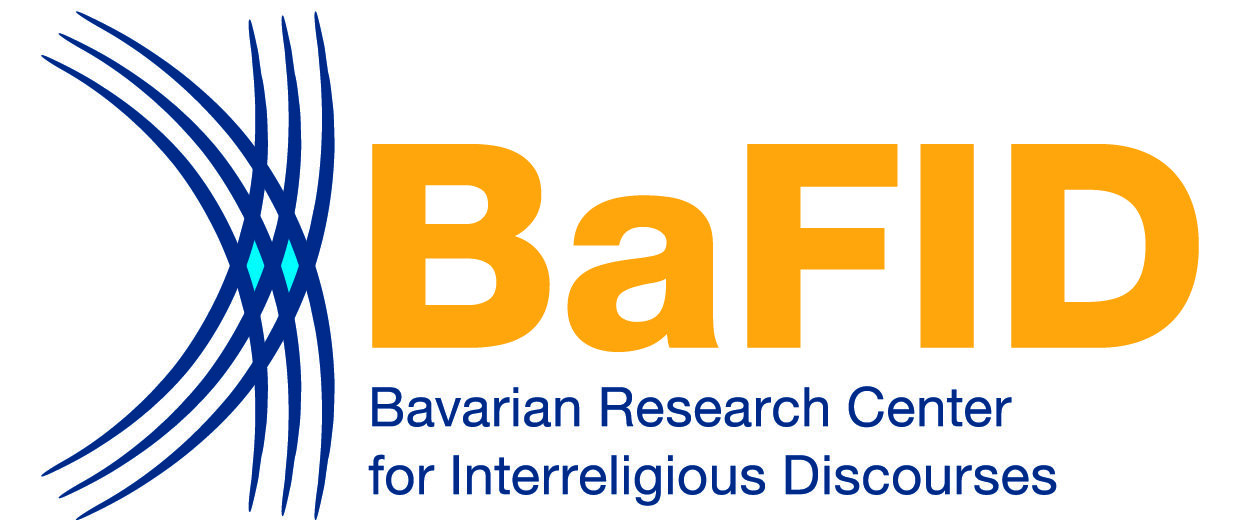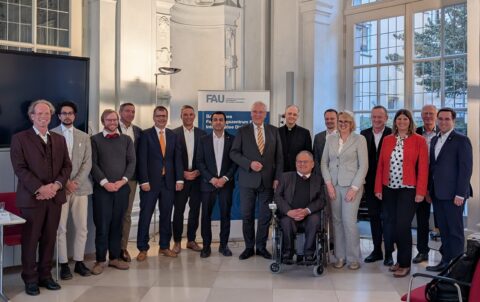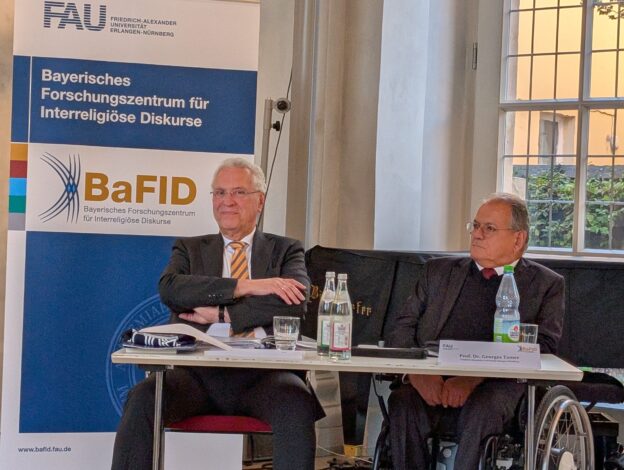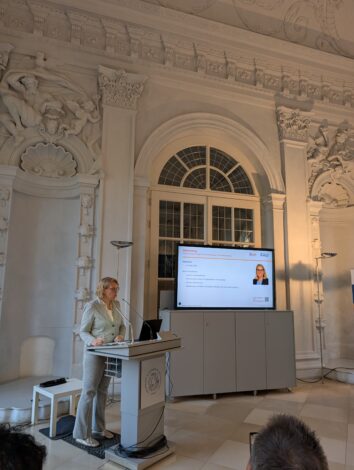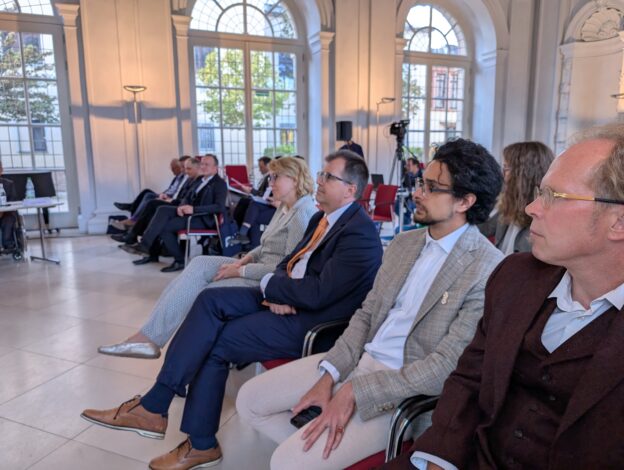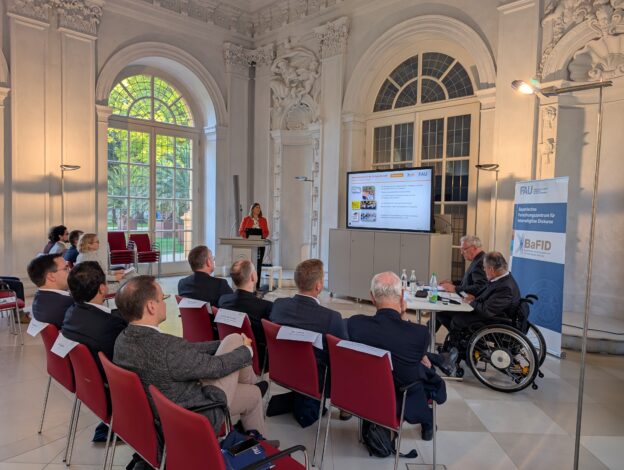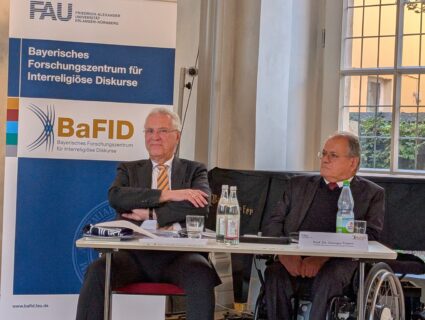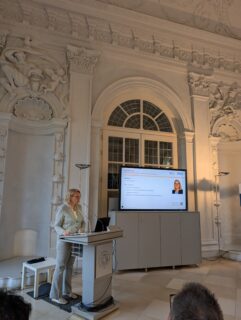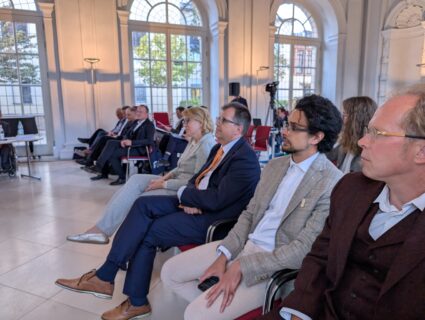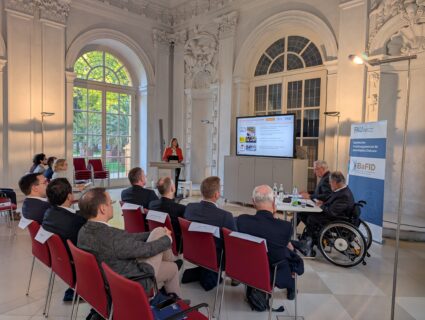BaFID Board of Trustees: Commitment to science, dialogue and social cohesion
An honorary board of trustees was established in order to effectively support the scientific work of the Bavarian Research Centre for Interreligious Discourse (BaFID) in the service of society. This board aims to further strengthen the center’s public presence. It is composed of renowned personalities from politics, religious communities, the media, business and science https://www.bafid.fau.de/zentrum/kuratorium/).
The Board of Trustees is chaired by Joachim Herrmann, Bavarian Minister of the Interior, Sport and Integration.
The Board of Trustees provides advice and support for the work of the BaFID. Its members are regularly informed about current projects and research findings and, in turn, contribute valuable insights—for example, by raising socially relevant questions about the role of religion in integration policy.
In this way, the Board of Trustees plays a key role in raising the profile of scientific findings and promoting social cohesion.
A closer look at the significance of the Board of Trustees reveals how closely its tasks are linked to the BaFID’s self-image. The term ‘board of trustees’ is derived from the Latin ‘cura’—care, nurture or supervision—and thus reflects its core mission: to advise, support and accompany. ‘For the BaFID, this means that the Board of Trustees strengthens our unique approach of combining basic research with knowledge transfer,’ says the center’s management. The aim is to explore Jewish-Christian-Islamic discourse in order to promote lasting social cohesion and deepen mutual understanding between people of different religious affiliations. ‘For true recognition of religious otherness can only succeed if commonalities are appreciated and differences are respected,’ says Prof. Dr. Georges Tamer. This makes it clear that the Board of Trustees plays a decisive role in bringing the scientific work of the BaFID to a broad section of society and strengthening its impact.
Hybrid board meeting on 2 October 2025
Under the leadership of Minister of State Joachim Herrmann, the Board of Trustees meeting took place in hybrid form on 2 October 2025. After welcoming those present on-site and digitally by the founding director of BaFID, Prof. Dr. Georges Tamer, the BaFID team presented the center’s key activities, including
- The KCID-Konferences and the accompanying scientific book series Key Concepts in Interreligious Discourse,
- The Bayerische Interreligiöse Kolleg (BIK), which will focus on the topic of „Die schönsten Weltuntergänge? Zukunftsszenarien, Utopien und Dystopien“ in the Winter Semester,
- The newly published Erlanger Jahrbuch Nr. 4 with the focus one „Interreligiöse Kompetenz und Wertevermittlung in der Bildungsarbeit“,
- The Interreligious Calendar, whose 2025 edition was produced in collaboration with religious communities in the Nuremberg metropolitan region and will be continued in 2026 with museums and libraries in the region,
- as well as a wide range of knowledge transfer events, such as “Fürth feiert Vielfalt,” Kinderuni, or the Nürnberger Digitalfestival.
Guest lecture by Prof. Dr. Kerstin Schlögl-Flierl: ‘Cautious, prudent, far-sighted’
A highlight of the meeting was the guest lecture by Prof. Dr. Kerstin Schlögl-Flierl, holder of the Chair of Moral Theology at the University of Augsburg. As a ‘critical friend’—as she called herself—she looked back on five years of BaFID work and praised the center’s development with critical sympathy and theological depth.
Taking a current political event as her starting point, Schlögl-Flierl drew a broad arc between global challenges and the tasks of interreligious research. “I was just angry. This is not acceptable. “Everything I believed in is being dragged through the mud here—democracy, institutions, political action, credibility,” was her reaction to a speech by US President Donald Trump before the United Nations. This outrage was a starting point for her to reflect on the significance of truth today—and how religions are abused or instrumentalized in such discourses.
Her lecture was based on three key concepts that also describe central approaches to interreligious research: cautious, prudent, and far-sighted.
“BaFID is a place where all three characteristics can be practiced in an exemplary manner and radiate out into society,” emphasized Schlögl-Flierl.
- More cautious—because the center creates spaces where religious beliefs are taken seriously and at the same time reflected upon sensitively.
“At BaFID we do not talk about each other; rather, we talk to each other.” According to Schlögl-Flierl, this is the only way to ensure that interfaith dialogue can succeed on an equal footing. - Prudent—because BaFID broadens perspectives, involves new players and topics in the dialogue, and incorporates scientific findings into social processes.
“Not seeing yourself as the center of the universe, but finding your own voice in the concert of religions—that’s something you can practice here,” she said. - More forward-looking—because research at BaFID thinks beyond the moment. Schlögl-Flierl pointed to new questions about vulnerability, religious interpretations in the tech world, and the role of religion in future scenarios.
“Foresight means thinking ahead to the future—and that is what BaFID does in a special way,” she concluded.
Finally, she emphasized that scientific work that is cautious, prudent and far-sighted is also sustainable—and thus makes an indispensable contribution to social cohesion.
“Happy Birthday BaFID—a lot has already happened, but there is still a lot to be done,” concluded Schlögl-Flierl with an optimistic outlook on the coming years.
Ausblick
Through the work of its board of trustees, its research and its diverse range of events, the BaFID contributes to promoting dialogue, understanding and trust between religious communities and between them and society. The combination of academic excellence and social responsibility makes the BaFID a unique place for interreligious research—cautious, prudent and far-sighted.
